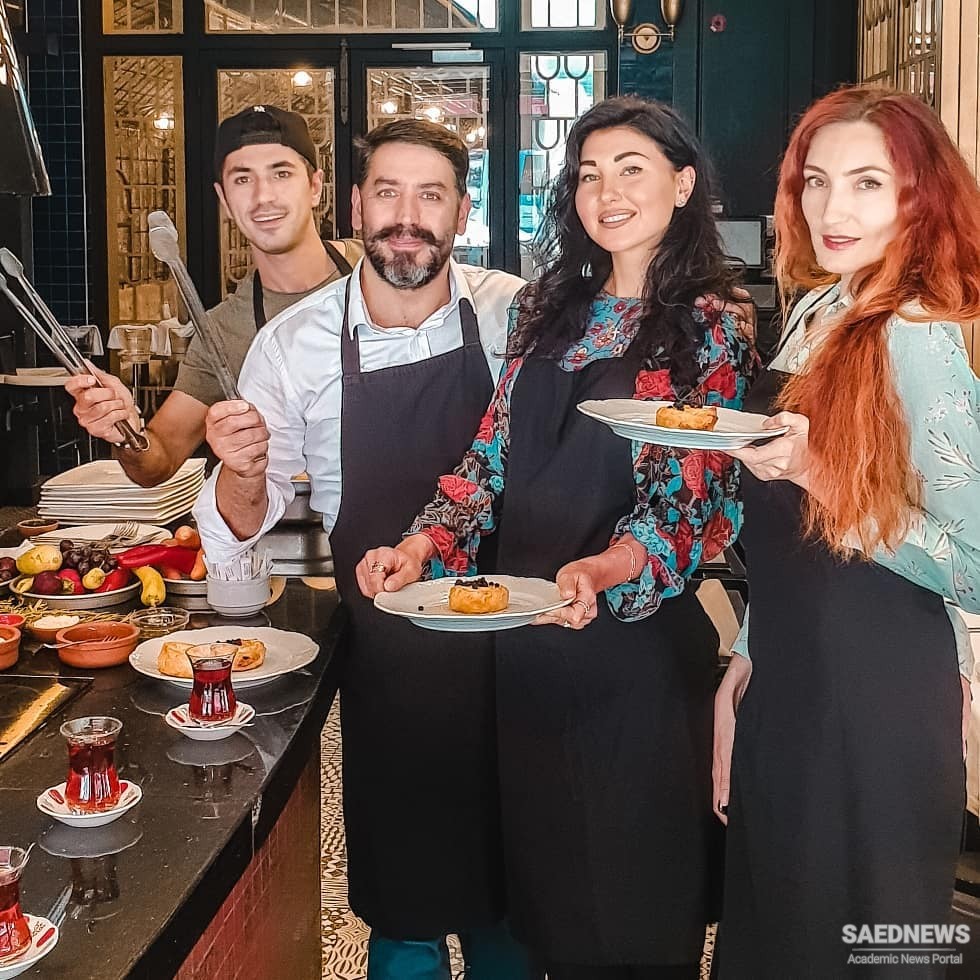The Ottoman kitchen was hot merely a space where food was prepared. The place of the table was extremely important in the ingredients used, in the tableware, in the side dishes (types of salads for each different dish), in the beverages and in the breads.
The respect of the people for each other was extremely important in this mensal culture.
The Ottoman was very careful for making sure that the smell of the food being cooked did not bother, others, since these odours might be disturbing the not-so-well-off neighbours. For this reason, talks that might lead to such feelings were carefully avoided. The principle in such conversation was “not to make the rich ashamed, and the poor awed” while the proverbs had make this rule almost an iron-clad principle: “Problems arise when one eats and the other watches.”
The Ottoman tradition foresaw a variety of tables
- Family table,
- Guest table,
- Collective meal table,
- Special day table,
- Wedding and circumcision tables,
- Rhamadan table,
- Muharrem (the first month of lunar calendar) table,
- Hammam table,
- Palace table.


 Ottoman Cuisine: Spectacular and Unique
Ottoman Cuisine: Spectacular and Unique














































